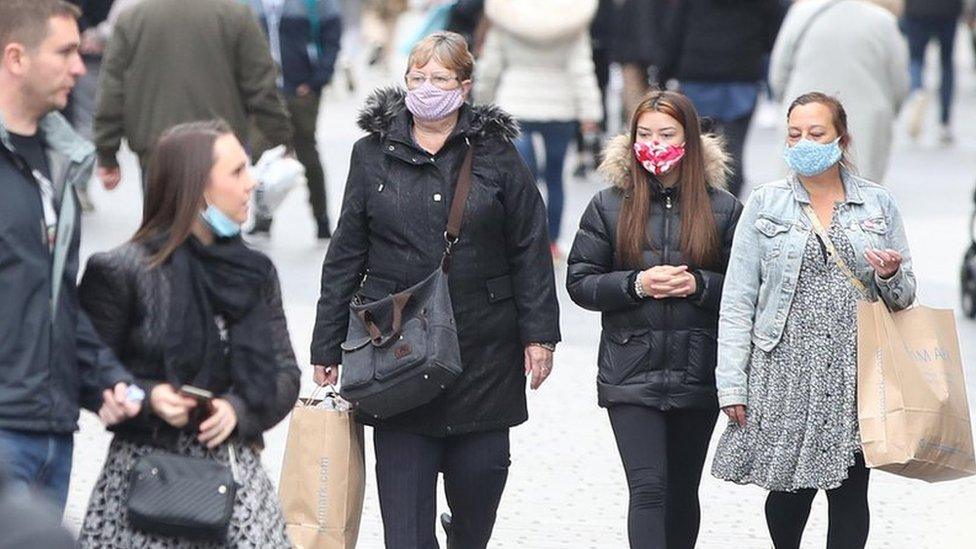Covid: Nightingale hospitals in northern England told to get ready
- Published
- comments
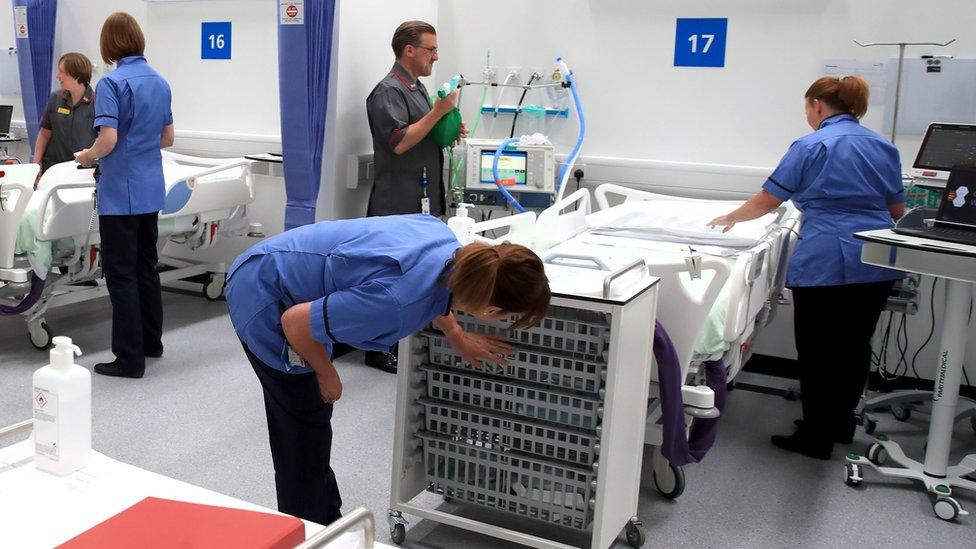
NHS Nightingale hospitals in Manchester, Sunderland and Harrogate are being asked to get ready to take patients.
Government advisers say admissions are rising, with more elderly people needing urgent treatment for Covid.
More people are now in hospital with Covid than before restrictions were announced in March.
It comes as a new three-tier system of lockdown rules for England has been announced.
From Wednesday, the Liverpool City Region will face the tightest restrictions under the new three-tier system which will classify regions as being on "medium", "high" or "very high" alert.
Liverpool recorded 600 cases per 100,000 people in the week ending 6 October. The average for England was 74.
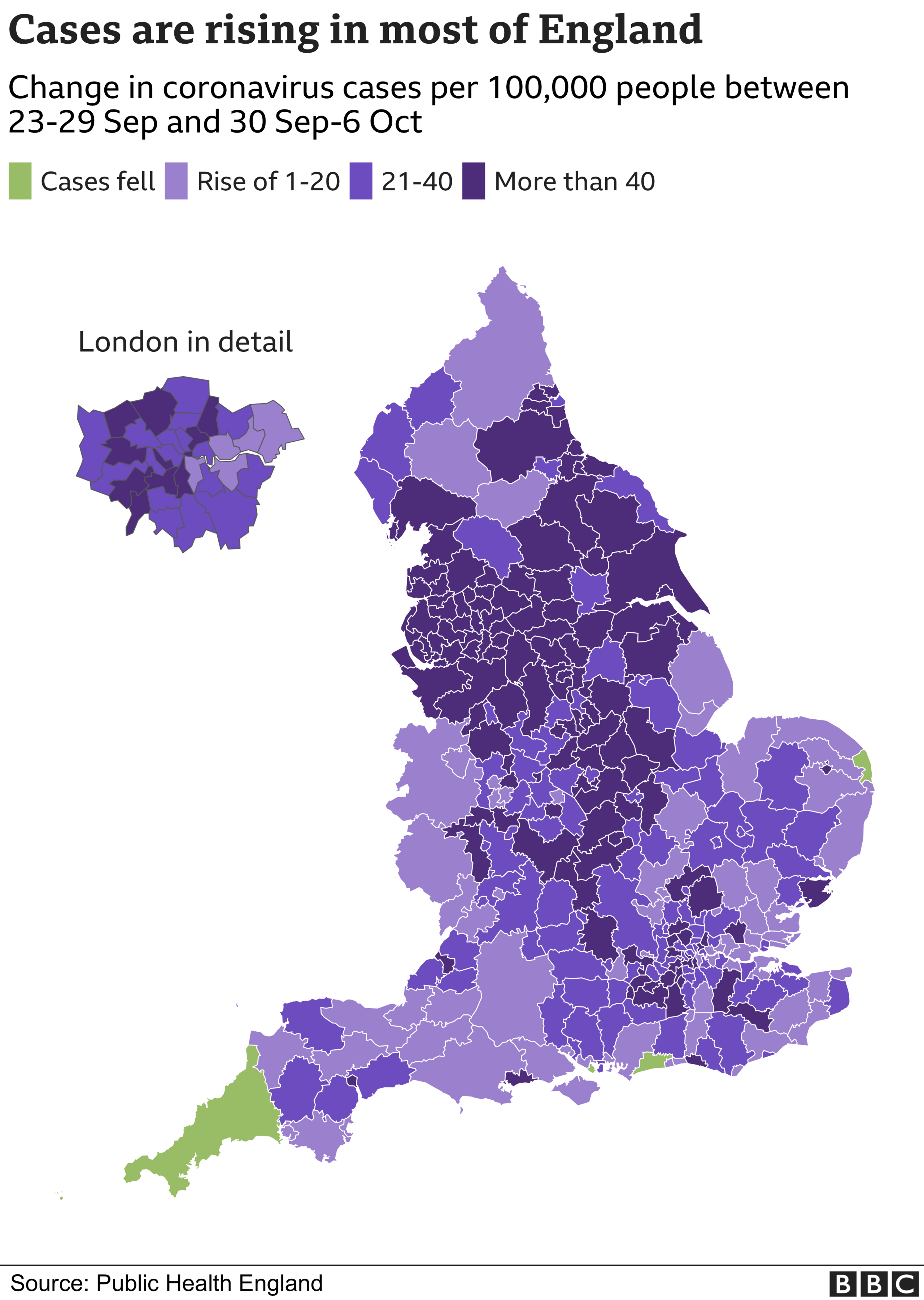
But England's deputy chief medical officer said the rise in coronavirus cases was now being seen "nationwide" and was not solely a problem for northern England.
Cases in Scotland, Wales and Northern Ireland have been increasing too.
Prof Jonathan Van-Tam said the "marked pick-up" that the country was seeing would lead to more deaths and he warned that coronavirus was spreading from younger age groups into the over 60s who are more vulnerable.
Stephen Powis: "There is still no cure, nor no vaccine for Covid-19"
Hospitals have not yet reached capacity, but the NHS may have to use some of the temporary critical care Nightingale hospitals if demand continues to rise, say the advisers.
Most of the Nightingales, set up in the spring as an insurance policy in case the NHS became overwhelmed, were never used.
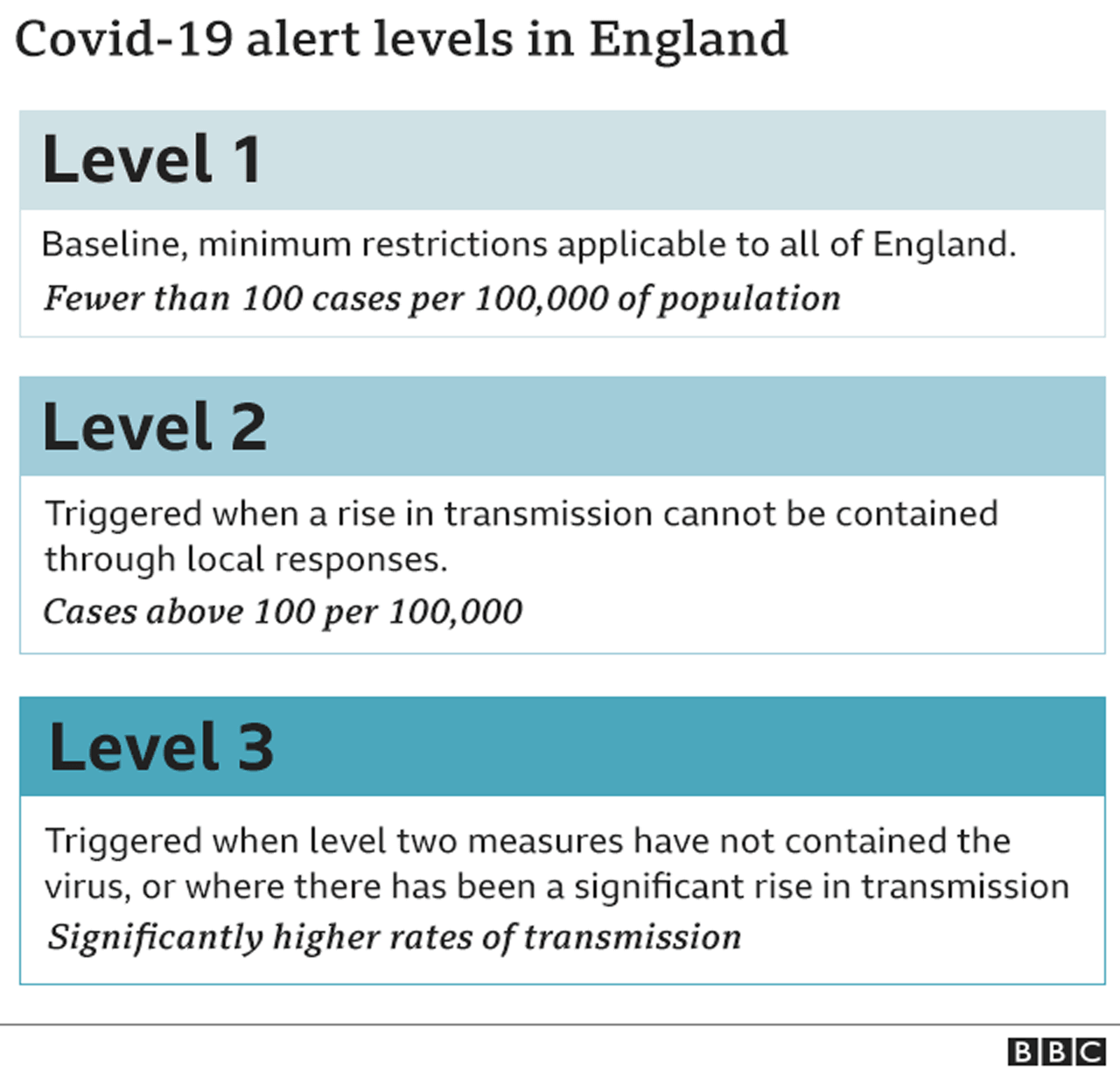

NHS England's medical director Prof Stephen Powis cautioned that it would take "a number of weeks" before the benefit of any extra measures - such as shutting pubs - would be seen in bringing hospital admissions down.
"In the over-65s - particularly the over-85s - we are seeing steep rises in the numbers of people being admitted to hospital so the claim that the elderly can somehow be fenced off from risk is wishful thinking," he said.
He said NHS staff working in the parts of England with the highest Covid rates would be offered regular tests to check if they had the virus.


The fact there are more patients in English hospitals now than there were when lockdown was announced is alarming.
But the comparison needs a bit of context too.
There has been a gradual and slow build up to the 3,500 cases in English hospitals in recent weeks.
Around 500 new patients a day are being admitted at the moment - with a few hundred being discharged too.
The number of daily new admissions is on an upward trend, doubling every fortnight at the moment.
But, compare that to the spring, and the picture is somewhat different.
The numbers being admitted were exploding then - doubling every few days and threatening to overwhelm hospitals everywhere.
Soon 3,000 new cases a day were being admitted. That is three times worse than the NHS would normally see for all types of respiratory viruses in the middle of winter.
What we are seeing currently is not like that.
The danger with Covid, of course, is things can get worse rapidly. That has certainly happened in the north west and could be repeated elsewhere.
The coming weeks will be crucial.

The problem with introducing the sort of restrictions that are being suggested to control the spread of the virus is that no-one is really sure whether they will really work.
Dr Jane Eddleston, medical lead in Greater Manchester, urged the public to "respect" the virus due to the "extremely serious" consequences it has for some patients.
She told the press briefing: "The North West has about 40% of all Covid cases at the moment and this is proving very challenging for us."
Prof Van-Tam reminded people how the virus spreads - in closed spaces, crowded places and between close contacts.


On Sunday, 12,872 people in the UK were reported to have tested positive for coronavirus - some 2,294 fewer than on Saturday.
There were a further 65 deaths - down from 81 on Saturday.

SOCIAL DISTANCING: How have rules on meeting friends changed?
FACE MASKS: When do I need to wear one?
TESTING: How do I get a virus test?

- Published11 October 2020
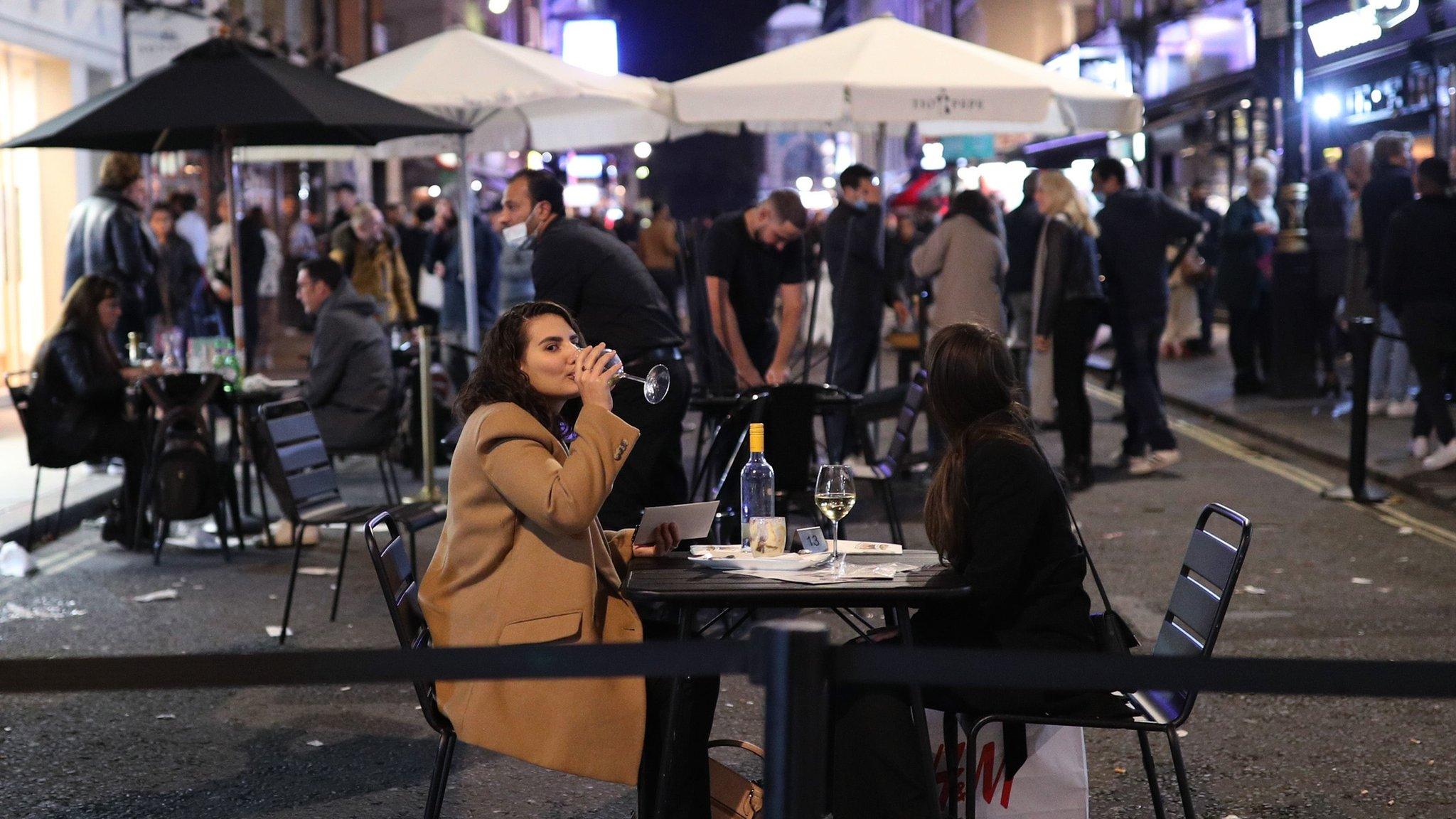
- Published7 October 2020
- Published12 October 2020
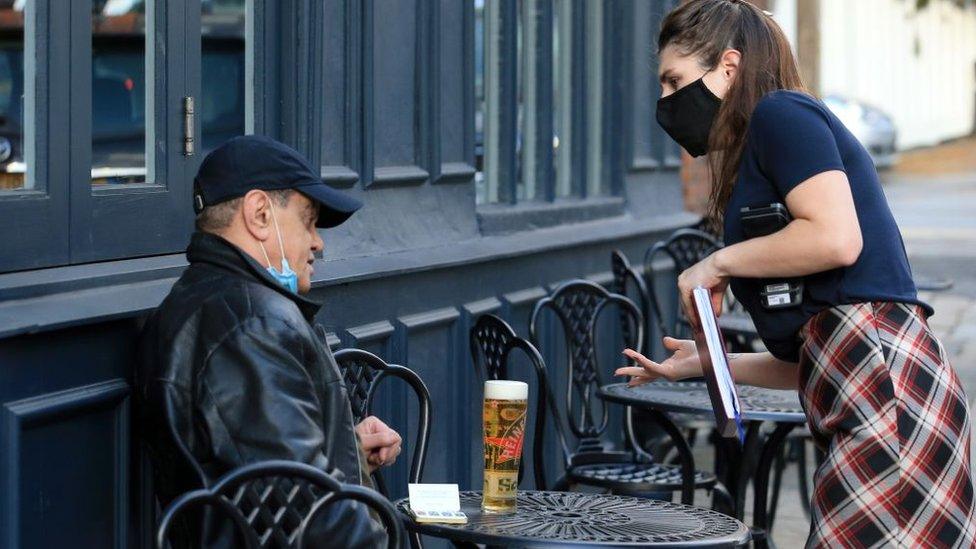
- Published11 October 2020
